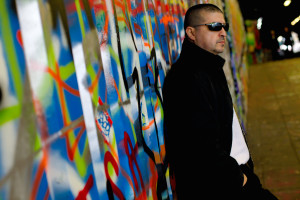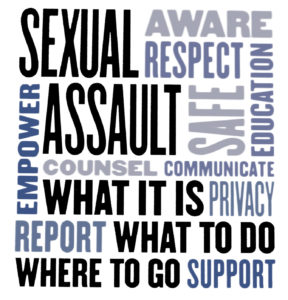SEXUAL ASSAULT IN CHILE
WHAT A FOREIGNER NEEDS TO KNOW
The responsibility for preventing sexual assaults and rape lies with both men and women. It is part of a larger conversation we need to have with our sons about what it means to respect women and for us as men to know what a culture of consent means. We also need to encourage or force the people who are in charge of enforcing laws to crack down on the assailants who violate those laws.
However, this article deals with the issue in Chile and what you can proactively do to mitigate your risk. Ask any woman and she’ll tell you, Chile has a problem with acoso sexual or sexual harassment/assault. If you don’t believe me see this facebook group called Observatorio Contra el Acoso Callejero Chile. While Chile is working to address the issues of rape and rape culture, educate the populace about consent and strengthen law enforcement responses to victims, everyday women in Chile have some useful tips and tricks for visitors. The focus is going to be about what women can do to avoid being sexually assaulted or raped, and if in the event that the worst happens, what you can do about it in Chile.
AWARENESS: Part of the prevention process is being aware of your surroundings. It is possible to be aware without being afraid. Concentrating solely on things like your smartfone or entirely on another person while walking takes away your awareness. I recommend looking around you every 30 seconds or so. What are you looking for when you look around? You are looking to see if anyone is paying more attention to you than usual. Pay attention to where you are going. Most people stop becoming aware when they are in familiar surroundings like your own street. But familiar surroundings are more dangerous because of this habit that we have to lose awareness. If you are being followed, get away fast, change directions, and walk or run to a crowded area. There are many techniques that deal with counter-surveillance which can be useful to know. A very good book on the subject of surveillance and counter-surveillance is Surveillance Tradecraft: The Professional’s Guide to Surveillance Training by my colleague Peter Jenkins.
MARTIAL ARTS: If we are being honest with ourselves, we will recognise that if you haven’t taken up martial arts by now then you probably won’t now. However, if you do, then there are myriad styles out there that you can do. All styles have value but some have more value to self-defense than others. One of those martial arts is called Brazilian Jujitsu. It is primarily an art for fighting on the ground using grips and holds. Most fights end up on the ground within the first 20 seconds anyway. BJJ promotes the concept that a smaller, weaker person can successfully defend against a bigger, stronger, heavier assailant by using proper technique, leverage, and most notably, taking the fight to the ground, and then applying joint-locks and chokeholds to defeat the opponent. Aikido is another style where its techniques consist of entering and turning movements that redirect the momentum of an opponent’s attack, and a throw or joint lock that terminates the technique.
CONFIDENCE: Always walk briskly; look alert and confident, avoid carrying objects requiring use of both arms. Make eye contact with the people around you (don’t be excessive about this). Most people will break eye contact with you. Human sexual predators are like any other type of predator, they hunt those people whom they perceive as weaker. By projecting an air of confidence and competency, you make yourself unlikely to be easy game for them.
DRESS COMFORTABLY: Dress as you please. However, non-restrictive clothing could be an advantage. We don’t want to lead anyone to think that when a woman dresses provocatively she is giving permission to be sexually assaulted. Nobody asks to be sexually assaulted or raped but to be aware that if someone ignores your limits and assertiveness, you want to be able to run and fight back if needed.
WEAPONS: Only arm yourself if you are trained in the use of the particular weapon. Weapons are often taken away from you and used against you. However, there are makeshift weapons that anyone can use which you probably have in your handbag right now and which are legal to carry around with you. A bunch of keys is my personal favourite. Held in your fist, it can be used to rake across your attackers face. Hair spray can be used to attack the eyes of the assailant, giving you the opportunity to run away or incapacitate the assailant. Even better is a canister of pepper spray. Everyday items such as pencils, pens, books or a rolled up newspaper can also be used to defend yourself against an attacker. Your voice is a weapon. Scream and shout for help is effective! The assailant wants you to comply and no one else to notice what is going on so use your voice.
SO TO RECAP:
- Be alert to your surroundings and the people around you.
- Stay in well-lighted areas as much as possible.
- Walk confidently at a steady pace on the side of the street facing traffic.
- Walk close to the curb. Avoid doorways, bushes, and alleys.
- If you are in trouble, attract help any way you can. Scream, yell for help, or yell “Fire!”
- If you feel you’re being followed, walk into a store or knock on a house door. Stay calm, consider your options and how safe it would be to resist.
- Say “NO” strongly. Do not smile; do not act polite or friendly.
- If the attacker is unarmed, fight back physically, shout “NO! & SOCORRO” and run away as soon as possible.
- If the attacker is armed, try to talk him out of continuing the assault, or try passive resistance (pretend to faint/vomit/urinate).
WHAT TO DO IN CASE OF A RAPE/SEXUAL ASSAULT
- Get to a safe place
- Call a friend or family member to be with you.
- Breathe deeply and remind yourself that you are of value and that what has happened is wrong and is in no way your fault.
- Call the police. A crime has been committed. Reporting the assault is a way of regaining your sense of personal power and control. It enables you to actively protest the violent crime that has been committed against you. Reporting and prosecuting the assailant are essential in establishing new norms that this behaviour is NOT okay. Taking legal steps helps prevent rape and protect other potential victims.
- Do not bathe, douche or change clothes. You may be destroying evidence essential to catching your assailant.
- Go to a hospital emergency department for medical care. This can be done without police intervention if that is your choice.
- Write down as much as you can remember about the circumstance of the assault and the identity of your assailant.
- Seek counselling and legal assistance from SERNAM (Servicio Nacional de la Mujer). The counsellor there can help you deal with the consequences of an assault.
WHO TO REPORT THE RAPE OR ASSAULT TO?
The Police of course but who are they in Chile? What most people call the Police here in Chile are called Carabineros de Chile. They are a paramilitary force, one of the four strands of the military which includes Army, Navy, Coast Guard and Carabineros de Chile. The emergency number of the police is 133 which is connected to the Central Communications (CENCO), closest to the nearest location of a police station.
There is another force called Policía de Investigaciones de Chile—PDI) who are the civilian police in Chile. The PDI is the principle law enforcement arm of the Public Ministry of Chile in criminal investigations. The PDI have a special unit called Brigada de Delitos Sexuales (Sexual Offenses Unit).
Overseeing criminal investigations is the Fiscalia de Chile which is somewhat equivalent to the UK’s Crown Prosecution Service. They direct both Carabineros and the PDI in criminal investigations. If you are not happy with the way either force treats you, you can report the crime through the Fiscalia.
Any opinions expressed here are those of the author (s) and not those of the company.

ABOUT THE AUTHOR: Jorge Salgado-Reyes is a Chilean/British private investigator, cyberpunk author, and photographer. Jorge is a former member and self-defence trainer for the London Chapter of the International Alliance of Guardian Angels and has studied Steelwire Mantis Kung Fu, Brazilian Jujitsu, Aikido and Iaido. A full bio can be found here.

Pingback: Discover Chile’s Top Posts on Facebook: Do’s and Don’ts Guide for Newly Arrived ExPats and Travellers | Discover Chile